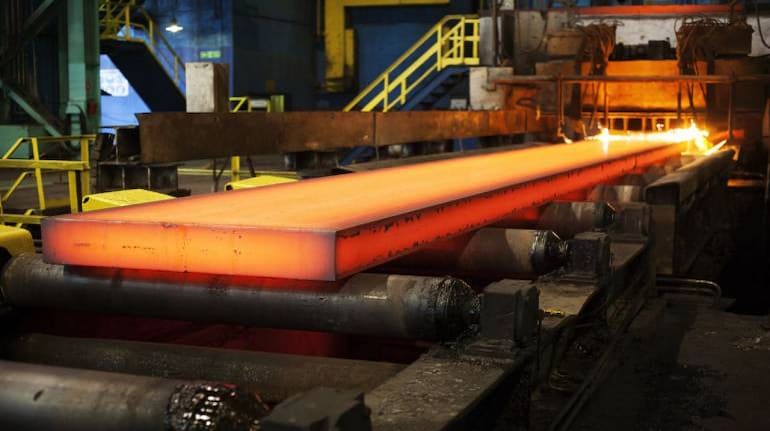



Steel prices have fallen to a two-month low, prompting Credit Suisse to downgrade the sector despite the optimism of leading domestic producers.
International brokerages say steel prices, which have fallen 11 percent in a week, are likely to remain under pressure as the sector faces many risks.
“We downgrade our longstanding positive view on the steel sector as we see multiple risks to steel prices ahead. Impact of supply chain shock, which drove steel prices to record highs which are easing now. As per analysis of China market, the country is entering into a weak demand season at a time when production continues to be very strong,” Credit Suisse said in a report.
Credit Suisse, a Swiss financial services company, said the Chinese government’s recent comments on price control of commodities, particularly iron and steel, along with an increase in run rates to barely 4 percent below pre-pandemic levels, were influencing the market. It said Indian steel prices were also at risk as local producers could not charge higher rates because demand weakened during the lockdowns that states recently imposed.
“Indian steel prices are at 18% discount to imports, a buffer which may not be enough if export prices follow the fall in China domestic prices. Chinese exports also may remain high in the near term until there is a gap between export and domestic prices, pushing export prices down. While we expect global ore prices to fall in 2H CY21, domestic ore prices may not correct as much due to an increase in cost for miners post royalty hike/auctions,” Credit Suisse said in the report.
However, companies do not expect a sharp fall in domestic or international prices.
Seshagiri Rao, Joint Managing Director of JSW Steel, told Moneycontrol in a recent interaction that there may be a small correction as prices had increased sharply.
“However, I don’t see a major correction in the prices like the last cycle. Steel prices rose up for fundamental reasons. First is an investment in infrastructure space globally which is an under-invested sector where there is a huge demand for steel. Secondly, the Chinese are not encouraging the export of steel, they have withdrawn the export rebate which is there from May 1st and more on ESG scrutiny,” he said.
Rao said China wants to reduce production and increase domestic use. Also, prices are not uniform across the world as Europe is imposing an anti-dumping duty, while the US has safeguard duties.
“Stronger demand is secular trend due to this fundamental factor. So, prices will not correct sharply,” he said.
Similarly, V R Sharma, managing director of Jindal Steel and Power Ltd said: “Domestic demand will come back from June 15th. As COVID-19 patients number are slowing down and infrastructure project will resume which is halted due to this second wave”.
On iron ore, analysts said NMDC’s domestic prices have almost always been at a discount to global prices. This discount has increased because of the sharp increase in global iron-ore fines’ prices, a gap that NMDC has not captured completely.
An industry insider told Moneycontrol “Based on channel checks in Odisha mining department, mining operations of Sarda mines have been closed. The Odisha government has directed that Sarda has already exhausted the extraction limit based on pro-data which may increase prices of iron ore domestically”.
Iron ore prices have fallen 12 percent in this week and are down 18 percent from record levels, but still 20 percent higher than last year.
Discover the latest Business News, Sensex, and Nifty updates. Obtain Personal Finance insights, tax queries, and expert opinions on Moneycontrol or download the Moneycontrol App to stay updated!